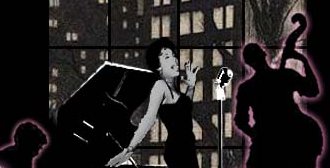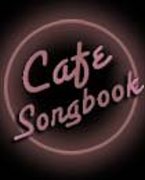Welcome toCafe SongbookInternet Home of the |
 |
 |
| Home || Songs || Songwriters || Performers || Articles and Blogs || Glossary || About Cafe Songbook || Contact/Submit Comment | |
| Search Tips: 1) Click "Find on This Page" button to activate page search box. 2) When searching for a name (e.g. a songwriter), enter last name only. 3) When searching for a song title on the catalog page, omit an initial "The" or "A". 4) more search tips. | |
I'll Get By (as long as I have you) |
|||
Written: 1928 |
Music by: Fred Ahlert |
Words by: Roy Turk |
Written for: Independent Publication |
| Page Menu | |||
| Main Stage || Record/Video Cabinet || Reading Room || Posted Comments || Credits | |||
On the Main Stage at Cafe Songbook | |||
Peggy Leeperforming "I'll Get By"(August, 1984) Peggy Lee previously recorded "I'll Get By" on her 1963 album
|
|||
|
(Please complete or pause one video before starting another.) |
|||
Jack Jonesperforming "I'll Get By"(c. 1995) Jack Jones recording of "I'll Get By" originally on the LP album
|
|||
More Performances of "I'll Get By" in the Cafe Songbook Record/Video Cabinet |
|||
Cafe Songbook Reading Room"I'll Get By" |
||
| About the Origins and Recording History of the Song | ||
|
I'll Get By" had several lives in terms of its recording history. Professional songwriters and often collaborators Fred Ahlert and Roy Turk wrote the song for independent publication and must have been gratified by the number of recordings made almost immediately after its publication in late 1928. These included Aileen Stanley, Gus Arnheim and His Orchestra, Nick Lucas, and Bing Crosby with the Ipana Troubadours. Recordings by all of these artists appeared in December, 1928, and were quickly followed by the song's major hit recording made by Ruth Etting on Feb. 1, 1929, reaching the charts on April, 13, 1929, staying there for ten weeks, and peaking at #3. The popularity of the song intensified when in October of 1929, the market crash made the need to "get by" more sharply felt. Although Billie Holiday's 1937 recording has achieved its own immortality, it was the capacity of the song, especially of its lyric, to tap into the feelings engendered by the pain of separations wrought by World War II that gave it a second life in the early 1940s. Recordings by The Harry James Orchestra with vocal by Dick Haymes, The Ink Spots and The King Sisters returned "I'll Get By" to popularity in Big Band and R & B modes. Its use in the 1943 A Guy Named Joe where it is sung by Irene Dunne and the 1944 movie Follow the Boys in which Dinah Shore performs it also helped the song's revival during this period. Jazz breathed new life into "I'll Get By" when artists such as John Coltrane, Coleman Hawkins, Count Basie, Erroll Garner, Jonah Jones, and Charlie Parker recorded instrumental versions while Peggy Lee, Cleo Lane, Keely Smith, Dionne Warwick and other singers recorded jazz inflected versions. By this time, in the late 1950s and early 1960s, "I'll Get By" had become a standard and has remained one ever since. |
|
| back to top of page | ||
| Critics Corner (This section is currently in preparation.) | ||
 Thomas Hischak, The Tin Pan Alley Song Encyclopedia |
Thomas Hischak calls "I'll Get By" "a potent depression chaser," with a lyric that incorporates "short but flavorful" phrases within a musical frame that is "unusual in the way it seems to awkwardly stop and not resolve itself, then . . . picks up again and gains strength as it proceeds to the next section," all of this in the service of demonstrating that "lack of money is no problem, now that he has her love to see him through" (Hischak, p. 171). | |
 Alec Wilder, American Popular Song The Great Innovators, 1900-1950, New York: Oxford University Press, 1972. |
I'll Get By" is not a song that has received a lot of critical attention, perhaps suggesting its slightness. Nevertheless the distinguished critic (and composer), Alec Wilder liked it. He writes of Ahlert that he was a "better-than-average writer, and though his best songs were not many, he deserves mention among the great craftsmen." As for "I'll Get By" Wilder points out that it was Ahlert's first big hit and that the song "deserved its success." Wilder believed that songs written for the theater were generally superior to popular songs written only for the popular consumption and that " I'll Get By"
|
|
| back to top of page | ||
| Lyrics Lounge | ||
Click here to read the lyrics for "I'll Get By," as sung by Frank Sinatra. Like so many singers, Sinatra, changes up the lyrics to suit his particular needs. First he omits the versewith which Roy Turk begins his lyric. There are at least two versions of the verse. To hear one, listen to the 1929 Ruth Etting recording in the Record/Video Cabinet. Here is the other:
Then Sinatra alters Turk's
refrainby omitting its central section. Finally, Sinatra returns to Turk's refrain singing its ending: "Poverty / May come to me . . . ," etc. The complete, authoritative lyrics for "I'll Get By " can be found in:
Click here to read Cafe Songbook lyrics policy. |
||
| back to top of page | ||
Visitor CommentsSubmit comments on songs, songwriters, performers, etc.
Feel free to suggest an addition or correction. Please read our Comments Guidelines before making a submission. (Posting of comments is subject to the guidelines. Not all comments will be posted.) |
| To submit a comment, click here. |
Posted Comments on "I'll Get By":
No Comments as yet posted |
| back to top of page |
Credits(this page) |
Credits for Videomakers of custom videos used on this page:
Borrowed material (text): The sources of all quoted and paraphrased text are cited. Such content is used under the rules of fair use to further the educational objectives of CafeSongbook.com. CafeSongbook.com makes no claims to rights of any kind in this content or the sources from which it comes.
Borrowed material (images): Images of CD, DVD, book and similar product covers are used courtesy of either Amazon.com
Any other images that appear on CafeSongbook.com pages are either in the public domain or appear through the specific permission of their owners. Such permission will be acknowledged in this space on the page where the image is used.
For further information on Cafe Songbook policies with regard to the above matters, see our "About Cafe Songbook" page (link at top and bottom of every page). |
The Cafe Songbook |
||
|
Performer/Recording Index
(*indicates accompanying music-video)
|
||
1928
Notes: A studio recording from December 28, 1928 with the Ipana Troubadours. Crosby biographer Gary Giddins writes:
|
||
| back to top of page | ||
1929
Notes: Although Etting's recording followed Crosby's, it was her version having reached the charts on April, 13, 1929, staying there for ten weeks and peaking at #3, that really put the song on the map. |
||
| back to top of page | ||
1937
Notes: recorded May 11, 1937, Buck Clayton (tp) Buster Bailey (cl) Johnny Hodges (as) Lester Young (ts) Teddy Wilson (p) Alan Reuss (g) Artie Bernstein (b) Cozy Cole (d) Billie Holiday (v): : "The band opens and Hodges takes over in an excellent solo. Billie’s marvelous rendition is a classic. Wilson and Buck close with more swing. Billie will record it once more in 1944 (s.MT #163), but this one is superior" (from Billie Holiday Discography, no longer available on-line). |
||
| back to top of page | ||
1941
Notes: The Harry James / Dick Haymes recording of "I'll Get By (as long as I have you)" reached the charts on April 15, 1944, reached #1, and remained on the charts for 28 weeks. It's not hard to understand how during WW II a song with such a lyric, albeit written sixteen years earlier and recorded by James and Haymes three years earlier (April, 1941, before America entered the war), would recapture the feelings of Americans both away at war and back home: "Though I may be far away . . . though there be rain and darkness too, I'll not complain, . . . As long as I have you." |
||
| back to top of page | ||
1943
Notes: "MCA's 20th Century Masters: The Millennium Collection is a good, basic collection of the Ink Spots' biggest hits — including [along with 'If I Ahd You'] 'If I Didn't Care,' 'My Prayer,' 'Java Jive,' 'Don't Get Around Much Anymore,' 'I'm Making Believe,' 'The Gypsy,' 'I'm Beginning to See the Light,' 'Prisoner of Love,' and 'To Each His Own'" (from iTunes review). |
||
| back to top of page | ||
1958
Notes: This CD reissue consolidates a very good session by tenor saxophonist John Coltrane. Originally these eight standards (which include the title cut, "Invitation," "My Ideal," and "I'll Get By (As Long as I Have You)" were scattered on three separate LPs even though they all took place on the same day. With strong support from the rhythm section (pianist Red Garland, bassist Paul Chambers, and drummer Jimmy Cobb) and good solos from flügelhornist Wilbur Harden, Coltrane is heard near the end of his "sheets of sound" period, perfecting his distinctive sound and taking colorful and aggressive solos" (iTunes review). |
||
| back to top of page | ||
1960
Notes: "This is not an essential album, in any usual sense. It is a simple program of eight relaxed numbers, some well-known standards, some bygone obscurities. It is also one of the great, unheralded ballad albums in jazz. With more than 30 years in music under his belt, Hawkins had left an indelible mark on the jazz landscape long before he recorded At Ease in January of 1960. But with nothing to prove, the tenor master swings and sways with supreme grace and sophistication, playing with pure pleasure and seeming effortlessness" (from iTunes review). |
||
| back to top of page | ||
1963
Notes: album personel: Peggy Lee, vocals; Herb Ellis, Al Hendrickson and John Pisano guitar; Justin Gordon, flute and tenor sax; Harry Klee, flute; Jack Sheldon, trumpet; Lou Levy and Bob Corwin, piano; Max Bennett, bass; Stan Levey and Mel Lewis, drums; Chino Pozo and Francisco Aguabella, percussion. |
||
| back to top of page |
| Home || Songs || Songwriters || Performers || Articles and Blogs || Glossary || About Cafe Songbook || Contact/Submit Comment | |
© 2009-2018 by CafeSongbook.com -- All Rights Reserved |

